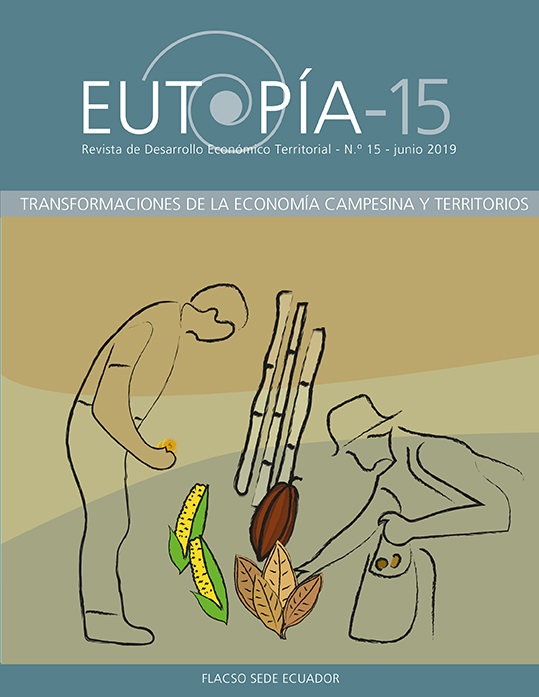Types of resistance of family farmers in the Northwest of Uruguay
Abstract
Despite the advance of agrarian capitalism over the Pampas pastures, still most family farmers in Uruguay are livestock producers, dedicated to the mixed breeding of cattle and sheep. Within the framework of a more comprehensive investigation about resistance practices of family farming, concepts of Bourdieu's work are used, such as peasant habitus and practical sense, to analyze the resistance strategies of family farmers in northwestern Uruguay. An ethnographic study of sixteen families of livestock farmers, through the "Global Approach of Agricultural Exploitations" and life stories of families, allowed to identify the strategies (economic, educational, inheritance and symbolic), and typify the resistance of these family farmers. It is discussed the role of endogenous and exogenous conditions in the families' objectives and in the practices and strategies generated.
Downloads
Copyright (c) 2019 Virginia Rossi Rodríguez, Verónica Filardo, Eduardo Chia

This work is licensed under a Creative Commons Attribution-NoDerivatives 4.0 International License.

Eutopía, Revista de Desarrollo Económico Territorial, operates under Creative Commons Attribution-No Derivative Work 3.0 unported (CC BY-ND 3.0).
The authors who publish in Eutopía accept these terms:
You are free to share / copy and redistribute the material in any medium or format for any purpose, including commercial. Therefore, authors retain the copyright and cede to the journal the right of the first publication (CC by-ND 3.0), which allows third parties the redistribution, commercial or noncommercial, of what is published as long as the article circulates without changes.
The following conditions exist for the authors:
Recognition - you must recognize the authorship, provide a link to the license and indicate whether changes have been made. You can do this in any way reasonable, but not in a way that suggest that has the support of the licensor or receives it by the use he makes.
Without Derivative Work – If you remixed, transform or create a work from the original material, you cannot broadcast the modified material.
For more details, visit the page of Creative Commons (CC).


























